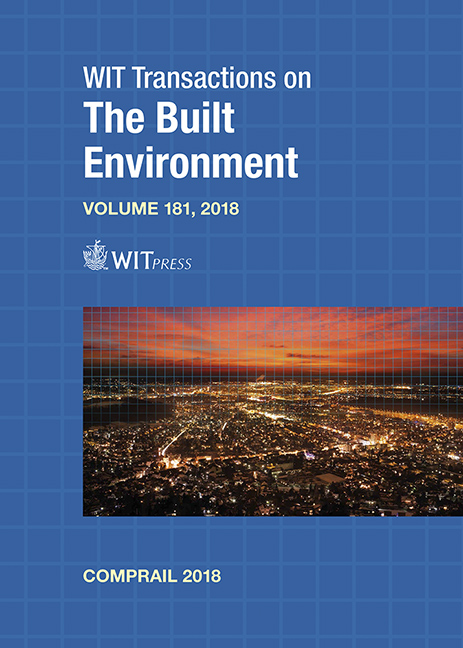ENHANCED EFFICIENCY IN RAILWAY DRIVING: DEVELOPMENT OF ECOS (ENERGY CONSUMPTION OPTIMIZATION SOFTWARE) TOOL
Price
Free (open access)
Transaction
Volume
181
Pages
12
Page Range
3 - 14
Published
2018
Size
441 kb
Paper DOI
10.2495/CR180011
Copyright
WIT Press
Author(s)
FELIX ARIZA, JOSE M. MERA, EDUARDO CASTELLOTE, ISRAEL GÓMEZ-REY
Abstract
Railway transport consumes large amount of energy and fuel every year. Increasing environmental concern and raising prices in diesel fuel and electrical energy has resulted in optimization techniques being a must for railway systems. This paper aims to explain the development of a software tool able of calculating the optimal consumption speed profile for a train service within a given topology and timetable. It also shall provide when and what actions (powering, braking, holding speed or coasting) the driver should follow for achieving it. Historically these objectives have been approached using computer algorithms based on very simplified models or dynamic programming, resulting in unrealistic or restrictively slow frameworks. We propose a really fast and accurate methodology based on Optimal Control theory. The problem is formulated as a differential system of equations stating train dynamics constraint by track features, as permitted speed or slope value in the various sections. Analytical solution for such a system of equations is not suitable due to its strictly non-linearity, being necessary the application of fast convergence iterative methods as the Interior Point method based on logarithm barrier penalty functions. Several real-life scenarios have been tested using the explained tool and its output have been compared with validated results, having achieved a high degree of accuracy and speed. Accordingly is valid to conclude that this approach can be used to develop a Driver Advisory System for real trains.
Keywords
railway, efficiency, optimization, consumption, ECOs (Energy Consumption Optimization software), DAS (Driver Advisory System), train dynamics, optimal control, interior point method, environmental concern





